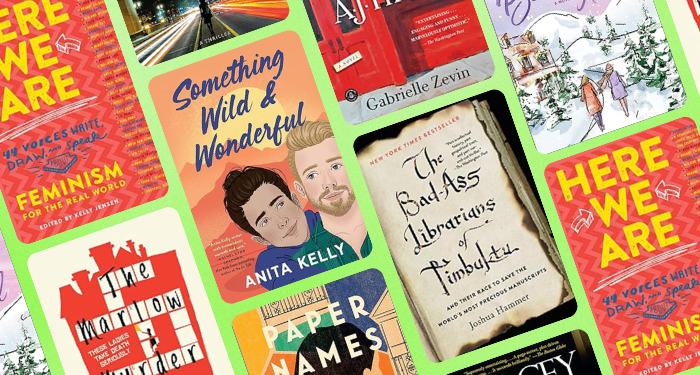In her 1993 poem, “won’t you celebrate with me,” author and educator, Lucille Clifton, invites us to wonder at the life she has created:
“… i had no model
born in babylon
both nonwhite and woman
what did i see to be except myself?
i made it up.”
As a Black woman existing at the intersections of these marginalized identities (“both nonwhite and woman”), Clifton finds herself rendered invisible in the mainstream and—consequently—creates herself in the process. 30 years onwards, Black women writers continue to take on the mantle of rendering themselves visible across genres and constructing models for future generations to see themselves in.
This has been especially true in the case of personal narratives, from memoir to essay collections. Starting with Harriet Jacobs’ Incidents in the Life of a Slave Girl published in 1861 as a foundational abolitionist text, through to Angela Davis: An Autobiography released only a few years after the acquittal of the Black Panther leader and prominent feminist, Black women have narrated their stories and transformed the personal into the political with radical results.
In our own personal narratives, we shrug off duty and expectations, the needs of others become secondary to our primary, as we catalog our hurts and our hopes. We become the hero, not saving anyone else but ourselves. To borrow a phrase from the late bell hooks, we move from the margin to the center.
The following contemporary memoirs and personal essay collections released in the past ten years exemplify this growing urgency by Black women to tell our side of the story. Their words illuminate the realities of the world and the impact of racist and sexist systems of powers on the lives of the most disenfranchised. These works are affecting, funny, haunting, inspiring and all urgently salient. They are additions to the records and the archives, insisting and reminding us that our voices always matter.
Men We Reaped: A Memoir by Jesmyn Ward
Within a four-year time span, two-time National Book Award winner Jesmyn Ward saw the deaths of five Black men in her life, including that of her brother. She chronicles their lives, alongside her own, of growing up in Mississippi and the history of racial violence that surrounds around them. “Hopefully, I’ll understand why my brother died while I live,” Ward writes, ”and why I’ve been saddled with this rotten fucking story.” Her journey of reflection is one of grief, anger, and guilt, all buoyed ultimately by the love that comes through of her family and the home that raised her.
Negroland: A Memoir by Margo Jefferson
Writing about her upbringing in a wealthy, professional Black community of Chicago in the 1950s, critic Margo Jefferson reflects on the intersections of race, gender, class, and color within her community, poetically delving into the nuances of Black life. The Pulitzer Prize winner manages a tight balancing act, honestly approaching the privileges and prejudices of her childhood family and friends, whilst remaining steadfast in her knowledge and understanding that Blackness—regardless of status or hue—is still ultimately Black. “We’re considered upper-class Negroes and upper-middle-class Americans,” her mother tells her, “But most people would like to consider us Just More Negroes.”
We Are Never Meeting In Real Life: Essays by Samantha Irby
Though comedy writing—much like comedy itself—continues to be a boy’s club, Samantha Irby fuses sarcasm, self-deprecation, and toilet humor into musings and anecdotes about her life in the Midwest. Whether she is writing about The Bachelorette or mental health or falling in love, her singular voice is sure to bring you to tears of laughter or sadness, if not both at the same time. In an especially funny take on her pain she asks, “Do Black girls even get to be depressed?” and hordes of us nod in synchronized recognition.
Hunger: A Memoir of (My) Body by Roxane Gay
Author, cultural critic, and professor Roxane Gay has never shied away from the story of the violent sexual assault that took place as a child, but the story extends from that experience to explore additional themes around the (her) body. Using examples from her own lived experiences, she challenges assumptions and conventional thinking about health and wellness, taking to task all the unacknowledged fatphobia we pervasively encourage in our society. Gay’s memoir is sometimes difficult to read, but necessarily so, particularly the parts where she works through her own demons and leaves us no choice but to confront ours too. “I buried the girl I had been… and perhaps I am writing my way back to her, trying to tell her everything she needs to hear.”
Thick: And Other Essays by Tressie McMillan Cottom
In a series of wide-ranging essays, the university professor and MacArthur Genius covers beauty standards, Black maternal mortality, and the election of Barack Obama, told through personal stories, academic scholarship, and cultural criticism. Thick is intentional in centering herself and the experiences of Black women and girls—a revolutionary and counter cultural endeavor given how “[the] personal essay [has] become the way that black women writers claim legitimacy in a public discourse that defines itself, in part, by how well it excludes Black women.” McMillan Cottom refuses to be shut out.
The Yellow House: A Memoir by Sarah M. Broom
“Remembering is a chair that is hard to sit still in,” writes Sarah M. Broom in her National Book Award-winning debut work. The title comes from the name of her childhood home in New Orleans where she grew up with her large, loving, and complicated extended family. She moves away for college and continues to move further away from the yellow house, until the tragedy of Hurricane Katrina forces her to reckon with her home and all the historical and political context of where she came from. She looks at race, class, and inequality from a humanistic lens, using her story and the stories of her loved ones to reveal the harder truths about the country and how far left there is for us to go.
Memorial Drive: A Daughter’s Memoir by Natasha Tretheway
For years, former Poet Laureate and Pulitzer Prize winner ran away from the defining tragedy of her childhood—the murder of her mother by her ex-husband when Tretheway was a teenager. “All those years I thought that I had been running away from my past I had, in fact, been working my way steadily back to it,” and her memoir is her way of unpacking that journey back, beginning with her mother’s death and studying all around it. As Tretheway looks at her own life, from growing up biracial around the time of Loving v. Virginia to finding her way to becoming a writer, she is tenderly attentive to the memory of her mother and grappling with the situation of her death, taking us along the often dark journey with her.
Just Us: An American Conversation by Claudia Rankine
Much like its author, Just Us is a text that defies categorization. The poet, playwright, and essayist utilizes poems, footnotes, essays, photographs, quotes, scripts, tweets and Facebook statuses to explore and indict American racism. Rankine’s writing is grounded in her own experiences, using everything from dinner party conversations with other academics and faculty members to moments between her and her White husband in couples therapy, resulting in a text that is personal, vulnerable, and filled with beauty. Rankine asks, “How does one combat the racism of a culture?” Just Us answers.
Shine Bright: A Very Personal History of Black Women in Pop by Danyel Smith
Former editor of the iconic hip-hop and R&B publication VIBE Magazine, Danyel Smith’s memoir doubles as a music history on Black women musicians. Smith chronicles her life growing up in Oakland and her journalistic path, looking to icons like Aretha Franklin, Donna Summer and Stephanie Mills as inspiration as to who she could be, and pays them their due through her own story. “I want Black women who create music to be known and understood, as I want to be known and understood,” Danyel writes, demanding that we pay attention to them and her too.
Ordinary Notes by Christina Sharpe
Ordinary Notes can be understood best as meditations—on Blackness, on life, on the human condition—penned deftly and poignantly by the woman described in the New York Times as “shaping a generation of Black thought.” Professor Sharpe intimately walks us through her life, from the museums she walks, to the songs she listens to, to the family histories she unearths, and in the final section, she dedicates pages considering the books she describes as “giving me a place to land in difficult times.” To Sharpe, they show “Black worlds of making and possibility.” Ordinary Notes does the same.







